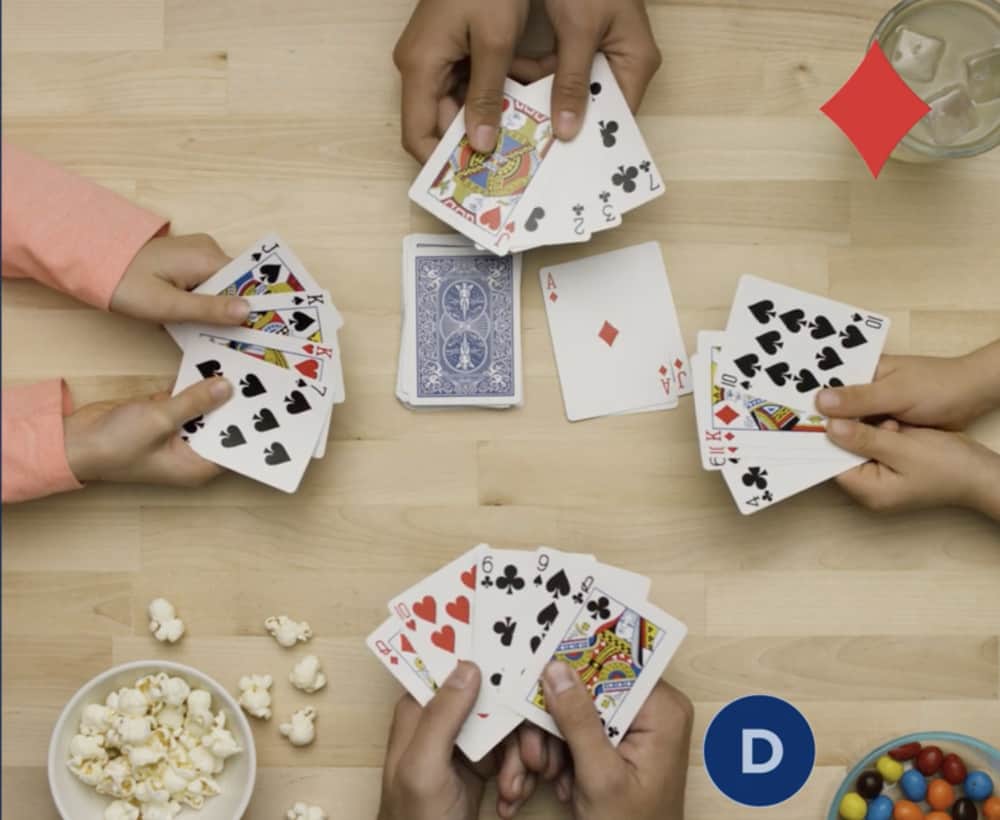Mastering Play with Playing Cards: A Parent’s Ultimate Guide
Welcome, parents! Are you looking for a simple, affordable, and versatile way to entertain your children while also providing educational value? Look no further! Playing cards are not just for games of chance or classic card magic; they are a treasure trove of fun and learning opportunities for children of all ages. In this comprehensive guide, we’ll explore the multiple benefits of playing cards and provide you with creative ways to incorporate them into your child’s playtime. Let’s shuffle into the world of possibilities that a deck of cards can offer!
Why Playing Cards Are a Parent’s Best Friend
Before we dive into the nitty-gritty of card-based fun, let’s talk about why playing cards deserve a spot in your parenting toolkit. Firstly, a deck of cards is incredibly economical. They’re affordable and widely available. Secondly, playing cards are portable. You can easily slip a deck into your purse or backpack for on-the-go entertainment. Lastly, their versatility is unmatched; with a single deck, you can engage in countless games, educational activities, and even creative storytelling!
Fostering Early Development Skills Through Play
Whether your little one is just starting to recognize numbers or your older child is mastering strategic thinking, playing cards offer a myriad of developmental benefits. For toddlers, card games can help with number and shape recognition, while for older kids, they can enhance memory, strategic thinking, and math skills. Plus, playing cards together as a family promotes social skills and emotional bonding. Let’s not forget the fun factor – playing cards is an excellent way to inject laughter and joy into your child’s daily routine!
Selecting the Right Card Games for Your Child’s Age
With the vast array of card games out there, it’s important to choose the right ones for your child’s age and skill level. For the tiny tots, simple sorting games or matching pairs can provide hours of fun. As children grow, consider introducing them to classic games like Go Fish or Old Maid. For the pre-teens and teens, games like Rummy, Hearts, or even Spades can offer more complexity and challenge.
Transform Learning with Playing Cards
Who said learning can’t be fun? Playing cards can be a powerful educational tool. Practice math skills by playing number-based games, enhance memory with concentration games, or introduce probability with more advanced card games. With a little creativity, you can adapt many card games to suit your educational goals. Stay tuned as we detail imaginative ways to turn playtime into learning time.
Creating Memorable Bonding Moments
One of the best things about playing cards is the opportunity to create special family moments. Setting aside time for a weekly card night can become a tradition that your kids will look forward to and cherish. It’s not just about the game itself – it’s about the conversations, the gentle teasing, the teamwork, and the shared experiences that strengthen your family bond.
Card games encourage patience, turn-taking, and respect for rules – invaluable life lessons that serve children well beyond the game table. Not to mention, it’s a fantastic way to unwind and reconnect after a busy day or week.
Let’s Get Started!
Ready to introduce the world of playing cards to your children? Great! Next up, we’re going to delve into specific games that are perfect for children of various ages. From the simple joys of Snap to the strategic depths of Bridge, there’s something for every child (and parent!). We’ll also share some tips and tricks for keeping things fresh and engaging, ensuring that playing cards remain a staple in your family entertainment repertoire. So, grab a deck, gather the family, and let’s transform a simple pack of cards into an endless source of fun and learning!
Stay with us as we explore the magic of playing cards, revealing one by one the secrets to unlocking their full potential for your child’s growth and memorable family bonding.

5 Things Parents Should Know in Preparing for Play with Playing Cards
1. Choosing the Right Deck
Not all playing cards are created equal. When selecting a deck for family play, consider cards that are durable and easy to handle for little fingers. Some decks come with fun themes and characters that can be more engaging for kids. Ensure you have a complete deck of 52 cards, as missing cards can limit the games you’re able to play.
2. Understanding the Basic Rules and Hand Rankings
Familiarize yourself with the basic rules of card games and the different hand rankings. This will help you teach and guide your children through various games with confidence. Start with simple games and gradually introduce more complex rules as your children’s understanding and skills develop.
3. Creating a Conducive Playing Environment
Ensure you have a comfortable and distraction-free space for card games. A table with adequate lighting and seating that accommodates all players is essential. It’s also a good idea to set a specific time for playing cards, creating a routine that kids can look forward to.
4. Balancing Competition with Fun
While playing cards can be competitive, the primary goal with kids should always be fun and learning. Encourage good sportsmanship and focus on enjoyment rather than winning. Celebrate effort, smart plays, and improvement in skill, rather than just victory.
5. Adapting Card Games for Educational Purposes
Consider using card games as a tool to reinforce what your child is learning in school. You can tailor games to practice arithmetic, develop critical thinking, or build vocabulary. This turns playtime into an interactive and educational experience without sacrificing the fun.
Ideas for Card Games by Age Group
Toddlers (Ages 2-4)
- Simple Sorting: Teach colors and suits by having toddlers sort the cards into piles by suit or by color.
- Memory Match: Use a subset of cards to play a memory matching game, turning over two cards at a time to find pairs.
Young Children (Ages 5-7)
- Go Fish: A classic game perfect for practicing numbers and pairs. Kids ask each other for cards to make matches.
- Snap: Great for reflexes and recognition, players snap down cards and try to be the first to identify matches.
Older Children (Ages 8-12)
- Crazy Eights: Teach strategy as players try to get rid of their cards by matching them by suit or rank with the card on the pile.
- Rummy: A game of grouping cards that helps with pattern recognition and strategic thinking.
Pre-teens and Teens (13+)
- Spades or Hearts: More complex trick-taking games that involve strategy and predicting opponents’ moves.
- Poker Variations: Teach probability, risk management, and psychology with simple versions of Poker.
Keeping Card Play Fresh and Engaging
Remember, variety is the spice of life—and card games! Introduce new games periodically to keep the interest alive. You can also create variations of familiar games to suit your family’s preferences or create entirely new games together. Encourage your children to come up with their own rules or card games to foster creativity.
Now that you’re equipped with these helpful tips and game ideas, you’re all set to start a wonderful journey of fun, learning, and unforgettable memories with your children and their soon-to-be favorite deck of playing cards. Let the games begin!
For more great fun click here. For more information see here
Disclaimer
The articles available via our website provide general information only and we strongly urge readers to exercise caution and conduct their own thorough research and fact-checking. The information presented should not be taken as absolute truth, and, to the maximum extent permitted by law, we will not be held liable for any inaccuracies or errors in the content. It is essential for individuals to independently verify and validate the information before making any decisions or taking any actions based on the articles.




